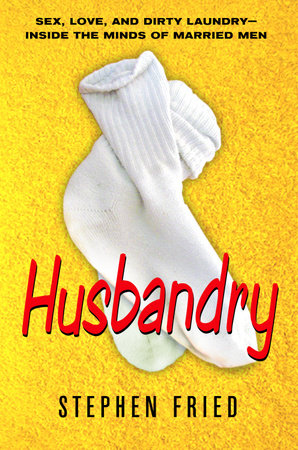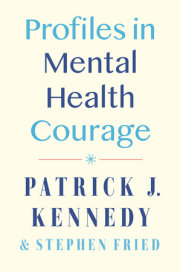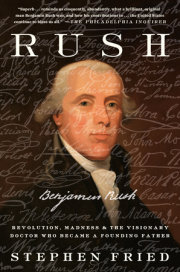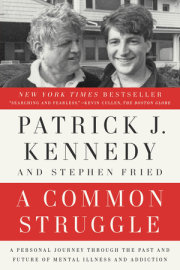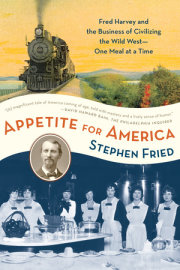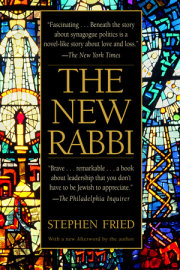Chapter 1
Every Journey Begins
with a Pair of SocksLet's start with my socks. Not the ones I'm wearing, but the ones I wore yesterday. The ones I took off last night and plopped on the floor in the general vicinity of the laundry basket. Yes, those socks. Those size-thirteen socks that are the biggest source of discord in my twenty-year marriage.
When my wife, Diane, comes across my socks—so close to the basket, yet so far from actually being in it—the incredulity begins to bubble up inside her. And then we have "the discussion," which starts out about socks and ends up being about the evolution of the species. It's the same place the discussion about the dirty dishes in the sink ends up.
Now, this discussion about the evolution of the species is actually quite fascinating—as long as you're not in the middle of it. As it begins, Diane, who has a high-school trophy on her shelf for "Best Negative Debater," poses this query: Are these socks (or dishes) left where they are because I don't remember she's asked me a million times not to leave them there, or because I remember being asked, but I just don't care that it matters to her?
While I'm trying to figure out which response would be better for the future of my marriage (or, as the guys in my regular half-court basketball game put it, "Which answer gets me laid?"), my wife, a novelist who also reads a lot of science books for fun, asks a second question. If I don't remember (which is sounding more and more like the right answer here), is it because I wasn't listening to her all the times she asked, or is there something wrong with me physiologically—an actual problem with the workings of my brain, some bad sectors on my mental hard drive? Then she notes that studies have shown that men's brains deteriorate faster than women's, and at forty-nine, my robust lobes have probably started shrinking to the size of raisins.
By this point in the increasingly one-sided discussion, the correct response is clear.
Okay, put me down for the brain damage.
If only it were that easy to escape the discussion. Usually, I am able to wriggle out of this inquisition because my wife knows that I wouldn't purposely do anything to make her upset. But I suspect she also privately takes comfort in the smaller brain theory, which is another example of the big lies women tell men about size not mattering.
What I would never tell her, of course, is that while I really don't remember that I shouldn't let my socks decorate the floor, I also don't really care. Sure, I care that it matters to her. But to be perfectly frank, I doubt I'm ever going to really care myself or even understand why it matters to her. When it comes to socks or dishes, Diane knows I prefer a good, messy pileup and, after a week (or a month) or so, a really good cleaning. For situations where bacteria and decay aren't involved, well, what's wrong with tidying up once a year?
After all, isn't that where the term "spring cleaning" came from?
I know there are some men who undoubtedly remember to put their socks in the laundry and believe in that same-day dish-doing thing. One of my two brothers is actually quite neat (we refer to him as "the mailman's child"), so it is possible for a man to actually care about such things. But most men I know don't. And won't.
One friend of mine believes that the real issue isn't remembering or caring, but rather the sheer volume of wifely requests. "Well, they go on and on about so many things—I mean, how can you tell which ones really matter anyway?" he asks, exasperated. "I think women need to stop every now and again and say, 'This bit is really important, so you can forget the last four hours of stuff I've been going on about.' "
While I have some experience with what he's describing, I still think the reason I can't just throw away a cereal box with five Cheerios left in it lies in the fuzzy area between remembering and caring. So I decided to dig up some of those studies Diane always throws in my face about men's and women's memories and brains. It turns out that the most current work focuses less on brain capacity and more on the gender differences in wiring, especially for cognition and memory. The research shows that women have better "emotional memories" and better "autobiographical memories" than men.
This would support a theory I like: Men are physiologically programmed not to remember that they are supposed to care about stuff like the final resting place of their socks. (On a more serious note, the researchers speculate that having a better emotional memory is one reason women suffer from depression more than men.)
I found another aspect of this study especially revealing. This particular research was done by showing groups of men and women the same series of images and then asking three weeks later what they remembered about them. Apparently, the women found four specific pictures the most emotionally intense. Dead bodies. Gravestones. Crying people. And a dirty toilet.
The women found a dirty toilet as emotionally intense as a dead body.
So here's my query to Diane: It's bad enough that you're burdened with this horrific association; is it something you really wish on me?
Her answer, of course, is yes.
Chapter 2Hoop Dreams for Husbands:
Half-Court at MidlifeEvery Sunday morning at 7:30, I bring my wife a cup of coffee in bed. And every time, I get the same yawning response.
"Play nice with the other boys," Diane says before rolling back over to sleep. "And don't get hurt."
It's not exactly an inspiring pep talk as I depart for the gym. But, in many ways, I share her concern about the half-court basketball game I've been playing in, with the same group of guys, since 1991. In our game, where the average player age is now fifty, winning isn't everything. Being able to walk to the whirlpool unassisted afterward is everything. Being able to play the next game is everything.
I'm at the age when most men experience basketball only in memory and on television—which they watch until it's warm enough outside to play golf. So I'm pleased to be part of a group that plays and sweats together, year-round, supported by ankle and knee braces, prescription goggles, taped fingers, and the power of competitive camaraderie.
I must admit that I'm awed by the amount of intense time this group of guys spends in the alternative universe of our half-court-at-midlife game. Not only do we play three times a week, but we also e-mail promiscuously—making sure we have enough players and cyber-trash-talking about previous contests. But only one player has ever said his wife was bothered by the amount of time his family was losing to the game. And that could be because they have four kids whom she left her law career to raise, and because he also has a lot of travel and dinner commitments for work. (He also has the worst injury record in the game: two torn knee ligaments, both of which required surgery and extensive rehab.)
Another player actually came to the gym one Sunday morning directly from the delivery room after his first child was born. He claimed he got permission from his wife, who had just finished twelve hours of labor.
We are still waiting to hear her version of this conversation.
As for Diane, her reaction is always the same. "Just don't get hurt." And when I do get hurt—so far no surgeries, but a lot of very colorful sprains, cycles of excruciating back pain, and an endless variety of contusions and gouges—she never calls me an idiot (although she may be thinking it). She knows the game sustains me in ways that matter to our marriage. If anything, Diane would like me to play more often. She wants the extra time alone in the house to write. But she also realizes how much I need to interact with a regular group of guys for reasons other than work or family—to re-create a certain bunk-mentality that I associate with summer camp, a dynamic that's increasingly hard to find as the hair under your bandanna grays (or disappears). There's also the purely physical satisfaction of your body doing something perfectly without you even thinking about it. Each of us has become addicted to the autonomic ballet of his best shot.
As the game has evolved, we've gotten to know one another's playing styles, moods, and physical changes intimately. We play only with the guys we bring (based on the principle that if you're going to have a career-ending injury, it should at least be inflicted by someone you know and like). So we are able to experiment with different match-ups—except for the two attorneys we call "the Bruise Brothers," who play with such disregard for their own bodies that we allow them to guard (and hurt) only each other.
While this is far from a sweaty support group, we have developed a kind of brotherhood over fifteen years of playing three-on-three. We're quick to comment on physical changes (in weight or mental acuity) and we minister to one another's injuries (out of a combination of compassion and selfish need to retain our regular players). We also bear witness to the plot twists of our off-court lives and offer whatever encouragement we can. Several years ago, one of our players lost his executive job. That sent a chill through a group that had come together in their thirties when we were young marrieds, but now were staring down the bazooka barrel of middle age. So after years of playing only on Sunday, we decided to add a second game, and started playing on Wednesday afternoons, too.
We told ourselves we were doing this to help our friend through a rough time but, in truth, we created this afternoon "hooky game" to stave off our own midlife crises. It was a much cheaper and less risky indulgence than a sports car or an affair, and if you work through lunch, disappearing from 2 to 3:30 doesn't seem so bad.
We liked the hooky game so much, we added another one on Friday. And so far, the game has worked as preventive therapy: Only one of our regular players has had a true midlife crisis. We discuss this and other personal stuff only after the game. While we try to keep the on-court banter focused on hoop controversies, our postgame discussions have a tendency to suddenly go deep, on politics or business or the most private of matters. And then we get dressed and go back to our lives.
Not long ago, my basketball buddies and I attempted to do something together besides play. It was the first time that we had all seen each other in street clothes. One of the Bruise Brothers was fighting in a celebrity boxing match on a Saturday night, and we decided to meet for dinner and then go watch somebody whack
him for a change.
The dinner conversation was pretty subdued. Apparently, we have an easier time being loose with our feelings when physically spent. (So if you have trouble getting your husband to open up, try athletic sex, or maybe just have him run around the block a few times.) When the fight ended after two rounds, I wondered if the group would go out drinking together, or visit the "gentleman's club" nearby. While most of our players are married and pretty settled, we do have some single guys in the group, including our oldest player (in his sixties) and our youngest (in his twenties)—we refer to them as "Sanford and Son"—who I thought might push the others into a night on the town. Instead, at 8:45 on a Saturday night, most of us were ready to call it quits.
After all, we had basketball in the morning.
Copyright © 2007 by Stephen Fried. All rights reserved. No part of this excerpt may be reproduced or reprinted without permission in writing from the publisher.

